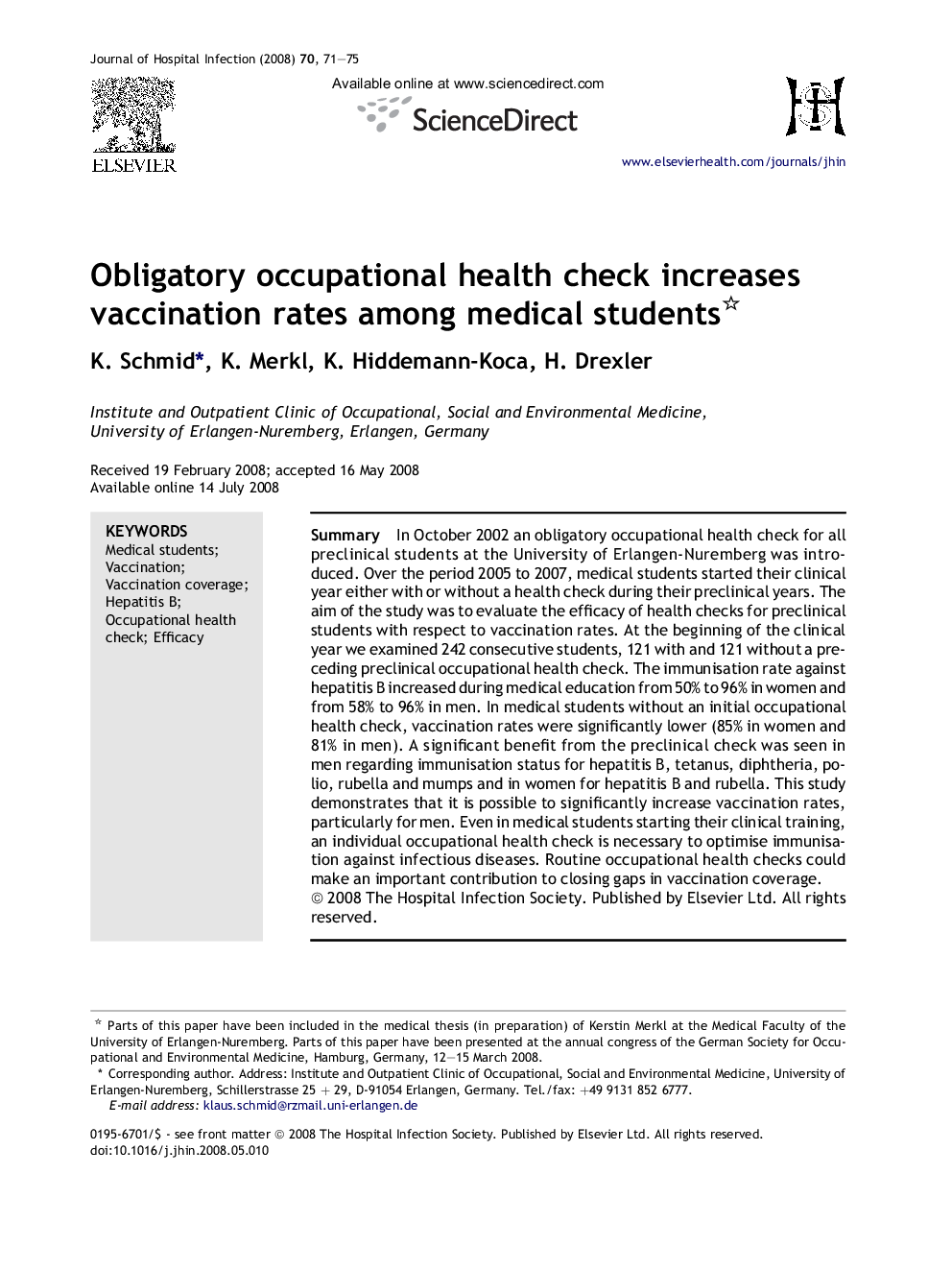| Article ID | Journal | Published Year | Pages | File Type |
|---|---|---|---|---|
| 3373263 | Journal of Hospital Infection | 2008 | 5 Pages |
SummaryIn October 2002 an obligatory occupational health check for all preclinical students at the University of Erlangen-Nuremberg was introduced. Over the period 2005 to 2007, medical students started their clinical year either with or without a health check during their preclinical years. The aim of the study was to evaluate the efficacy of health checks for preclinical students with respect to vaccination rates. At the beginning of the clinical year we examined 242 consecutive students, 121 with and 121 without a preceding preclinical occupational health check. The immunisation rate against hepatitis B increased during medical education from 50% to 96% in women and from 58% to 96% in men. In medical students without an initial occupational health check, vaccination rates were significantly lower (85% in women and 81% in men). A significant benefit from the preclinical check was seen in men regarding immunisation status for hepatitis B, tetanus, diphtheria, polio, rubella and mumps and in women for hepatitis B and rubella. This study demonstrates that it is possible to significantly increase vaccination rates, particularly for men. Even in medical students starting their clinical training, an individual occupational health check is necessary to optimise immunisation against infectious diseases. Routine occupational health checks could make an important contribution to closing gaps in vaccination coverage.
